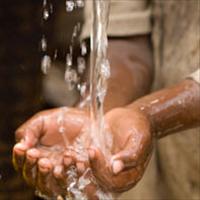GUINEA-BISSAU: Cholera epidemic lessons ignored

A cholera epidemic sweeping across Guinea Bissau has now infected 1,077 people - three-quarters of them in the capital Bissau - and killed 25, leading experts to ask why lessons from previous epidemics have not been taken on board.
Cholera killed 400 people and infected 25,000 across the country in 2005. “We wrote reports and made many recommendations to the government after the 2005 cholera outbreak but none of them were ever implemented, and so we are left to start all over again,” said Augostino Betunda, joint director of services at the Bissau centre of epidemiology, which is charged with diagnosing the disease.
Since then, water and sanitation infrastructure in the capital has hardly improved, according to Betunda, and still only one in five people can access piped water in the capital.
Instead most city-dwellers construct cheap wells for themselves. “Everyone builds their own wells in this country and they can only afford to build cheap ones, which then fall into a state of disrepair and allow toxins to pass through them, infecting the well water,” said Betunda. The few public wells the government has built are in rural areas.
Experts from UN agencies and non-governmental organisations (NGOs) are developing a new set of long-term recommendations to improve the water and sanitation infrastructure in Guinea-Bissau so that the country can avoid future epidemics. But a water specialist in Bissau is worried it will not spark the change that is needed.
“It is always the same problem. We do evaluations, we do reports with lots of conclusions, but in the end it often just comes down to lack of money and poor organisation,” he told IRIN.
Emergency measures
In the short term the UN children's fund (UNICEF) is trying to control the spread of the disease in the capital under the coordination of the Ministry of Health, and an emergency team of non-governmental organisations.
They are disinfecting wells in contaminated areas and the city’s eight reservoirs with bleach; and are sending teams house-to-house to inform people how to disinfect their wells, to spread public health messages and to distribute bleach.
The problem is that with almost daily heavy rains, this bleach is quickly diluted and it needs to be reapplied regularly to have any impact. But Nicolas Le-Goff, a water consultant with UNICEF is hopeful the slow-reacting disinfection solution they are using should only need to be reapplied once a week.
Identifying the source
Meanwhile government partners are pushing for better diagnostics of the source of the disease. The epidemiological centre has sent teams out across the city to try to establish if it is being passed mainly through contaminated food, water, or other methods, but Le-Goff says these surveys do not ask enough questions to give them the answers they need.
While the surveys ask people’s name, address, age and gender, “they need to cover where they have travelled, what is their main water source, what they have eaten, which markets they frequent, whether they have participated in traditional practices involving food and drink,” he told IRIN.
For Betunda the centre cannot improve its diagnostics capacity without more money. The centre runs on no electricity – it has a generator but it was never installed because they cannot afford the fuel to run it - and up to 80 percent of the centre’s budget has to go on staff salaries. “We weren’t paid last month, but we did get our salaries in May,” Betunda said brightly.
There is “next to no” budget for water and sanitation in the government budget, according to a government official, and while UNICEF installs water systems in health centres and schools, and NGO the International Committee for the Red Cross has improved water supplies in some towns and cities, there is no agency that has made water infrastructure its one and only priority.
But for Betunda, ultimately it is up to the government to take the reins. “It is the government’s responsibility to build up water infrastructure here - and if they don’t do it what else can we do,” he exclaimed, adding “Why are people always left to fend for themselves in this country?”
 Back and Next - Back and Next
Back and Next - Back and Next See Also - See Also
See Also - See Also